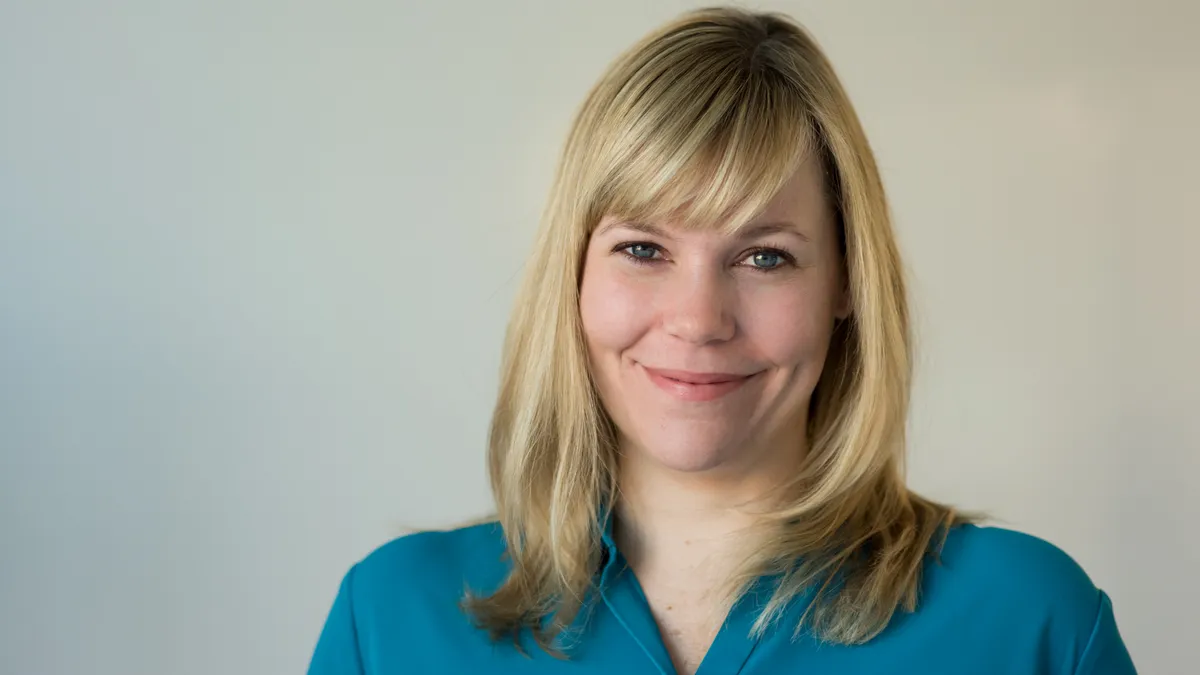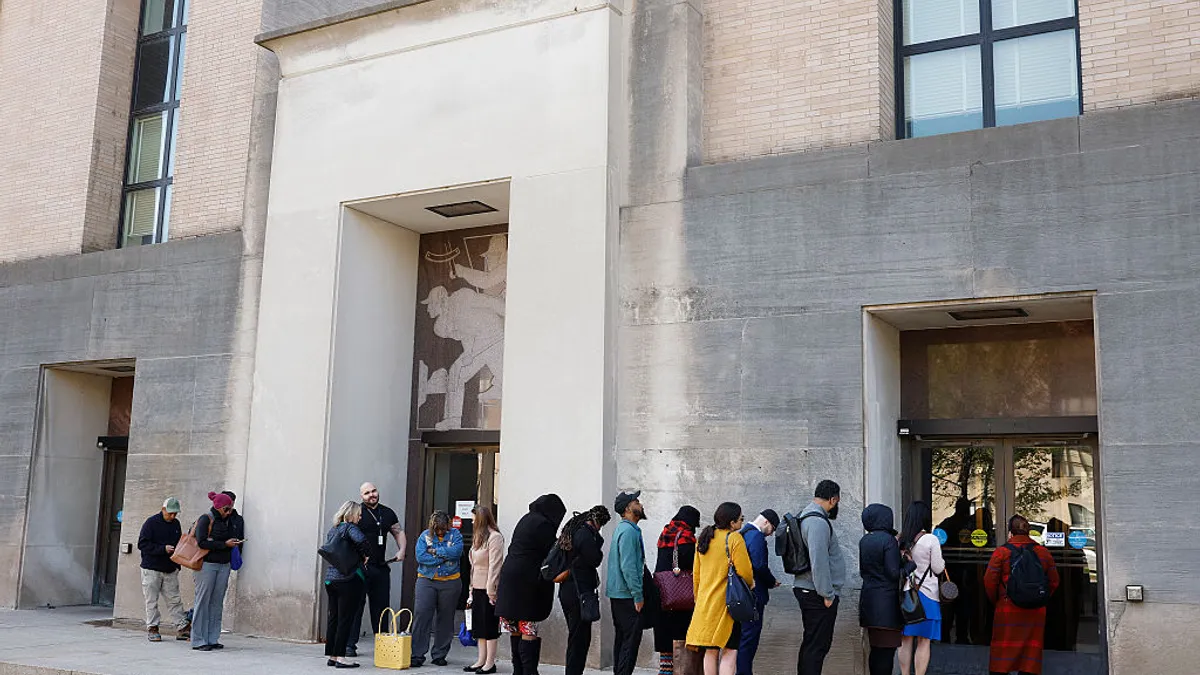Perched on a shelf behind Kate Haviland's desk is a black-and-white photo of a woman soaring through midair, her back arced gracefully as she leaps off a diving board. The backdrop of the photo is all negative space: We can't see the water she's diving into at all, which gives the impression of a free fall. It's an image that's both inspiring and a little nerve-wracking.
"It's just a great reminder that we need to take risks in this business if we're going to really change outcomes for patients, sometimes you just have to jump" Haviland says.
And yet the diver is wearing goggles, which means her risk is a calculated one — something that Haviland also appreciates.
"She's got some protection, but she's leaping," she says.
Haviland is familiar with leaping. At just 45 years old, she'll soon take the reins at Cambridge-based Blueprint Medicines, succeeding outgoing CEO, Jeff Albers. Effective April 4, she'll step into the role of president and CEO for the precision therapy company, where she's spent the past six years moving up the ranks from chief business officer to chief operating officer, and now, its chief executive. According to the company, with Haviland as CEO and her successor, Christy Rossi, as COO, Blueprint will currently be the only biotech company with a market cap up to $5 billion where women hold these two roles.
In many ways, Haviland's meteoric career trajectory mirrors that of the organization that she's been tapped to lead. Within a decade of being founded, Blueprint Medicines has become a publicly traded, commercial-stage company with a robust pipeline of therapies to treat cancer and blood disorders.
Key to that success has not only been the science behind the medicines — which selectively target the genetic drivers of disease — but also the way the company's people and growth have been managed. Haviland has learned that success in this business is about more than cutting-edge drug development.
Creating a diverse pool of ideas
"I've been in places where we've had great science and great programs, [but] leadership has just not been able to make the most of them because you need great people to do that," she says. "And if you don't have great people and great teams, you're not going to get the end result that you want."
Haviland believes that diversity and giving people the space and encouragement to debate, take risks, push boundaries, and fail are integral for a company like Blueprint to continually drive innovation.
Valuing diversity is baked into the company's DNA: Diverse people generate diverse thoughts, which allow leaders to have a rich pool of ideas from which to draw, Haviland says.
Also important to her are teams that are self-directed, dynamic, and collaborative. She wants people to work with "guardrails but not checklists."
"I believe in leaders, but not hierarchy," she says. "I look at the job of CEO as creating the context for great people to do their best work and for the best ideas to emerge."
And she knows that often the best ideas will come from the people who are closest to and most immersed in the projects they're working on, not necessarily from the company's top brass.
"These are groups of incredibly passionate and expert people who are really close to these programs — much closer than I am," she says. "So, they should come up with what's important, and I think that those are the types of philosophies that we built Blueprint on."
Taking the leap
Recognizing that no one person can do or know everything is key to Haviland's deal-making strategy, which is an essential element of the company's success and business development. In addition to devising the best ways to get medicines to the patients who need them, it's important to have the "humility" to ask, "What do we do really, really well, and what can someone else do better?"
She points to Blueprint's exclusive, worldwide license agreement with Ipsen, through its subsidiary Clementia Pharmaceuticals, to develop and commercialize BLU-782 in 2019, which Blueprint was developing to treat fibrodysplasia ossificans progressiva (FOP), a rare and painful genetic disorder that turns muscle, ligaments and tendons into bone.
She says it "became really clear" that the deal was the best and fastest way to get BLU-782 to patients because Clementia had already been running FOP clinical trials with a different mechanism.
"They had this incredible wealth of information on the disease… They had all of the history, they had all the knowledge, they had the natural history database, they had a dedication to this space. We were going to have to build all of that," she says. "It enabled us to make sure that program was in very capable hands and probably get [BLU-782] to patients faster."
The deal also brought in money, relieving Blueprint's long-term investment in the product and allowing them to channel those resources to other projects, like ones focused on lung cancer, she said.
That "humility" in realizing the value in others' skills is what has allowed Haviland to take risks in her career and take on "stretch" roles where she didn’t tick every box for experience or expertise. She raised her hand to take these jobs anyhow.
"It turns out that no one person has to have all the answers," she says. "What you have to have is that learning agility, that ability to collaborate, and valuing the people around you."
But even when a supervisor once told her that she was not ready to take on a new role, she didn’t believe it. That didn’t mean she wasn't nervous to try something different and challenging. She was. But that's not the same as believing she couldn’t do it.
"I think it's a very distinct difference," she says. After all, she had the skills. She was just using them somewhere new. Maybe she was jumping into the "deep end," she says, but she knew she could swim and had been swimming all along.
And so, like that graceful diver in the photo, she leapt into a new challenge.
"I haven't seen this deep end yet," she says. "But I can do it."


















